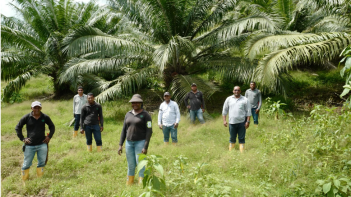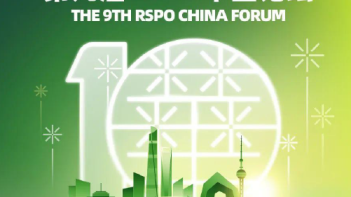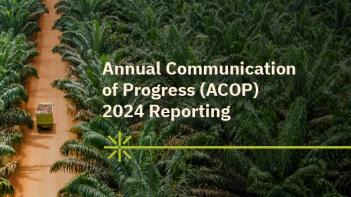As a tribute to Thailand’s sustainable palm oil progress over the last decade, RSPO launched the coffee table book, “Journey of Thai Palm Oil towards Sustainability” in Surat Thani, Thailand, last 18 August 2023. The special RSPO publication was supported by the Thailand Alliance for Sustainable Palm Oil (TASPO), a partnership platform for shared cooperation among stakeholders in the palm oil supply chain.
In his opening address, RSPO Technical Director Francisco Naranjo remarked, “This book is a window opening up to the real picture of how sustainable palm oil has evolved in Thailand. RSPO strongly recognises this growth and we wish for this momentum to continue as we build and strengthen our partnerships in Thailand.”
Francisco added that Surat Thani was the ideal setting for the launch for its sustainability leadership. “Surat Thani is Thailand’s national model city for sustainable palm oil. The province is also home to thousands of smallholders who are on a journey to become 100% RSPO Certified.”
In 2022, RSPO signed a Memorandum of Understanding (MoU) with the Surat Thani Provincial Office to strengthen collaboration to scale up Surat Thani’s sustainable palm oil initiatives, collaborating towards common goals including helping stakeholders secure access to the global market, obtaining premium prices for responsible palm oil entrepreneurs that offer certified sustainable products, and improving Thai farmers’ income and livelihoods.
World’s top third
Chairman of TASPO Asani Malampuj, said, “The Journey of Thai Palm Oil towards Sustainability” is a book that intends to present the commitment of entrepreneurs in the oil palm industry in Thailand – from palm plantation, extraction plants, refineries, consumer product processing factories, as well as relevant government agencies – to develop policies and upgrade Thailand’s palm oil production as the world’s top third exporter of palm oil to meet international quality standards.”
Thailand is the world’s third biggest palm oil producer behind Indonesia and Malaysia. Driving the country’s industry are oil palm smallholders, who represent about 70% of palm oil production. Despite the critical contribution of smallholders to Thailand’s palm oil industry, they continue to face many challenges, from effective plantation management to access to microfinancing programmes and certification standards which link them to global markets.
Thailand was the first country in the world to have four RSPO Certified independent smallholder groups in 2012. Currently, there are over 80 certified smallholder groups in six provinces, including Surat Thani, Krabi, Chumphon, Nakhon Si Thammarat, Trang and Chonburi.
“By showing how it is possible to build a palm industry with independent farmers at its core, Thailand has offered the world important lessons, and much inspiration, for developing smallholder groups everywhere,” added Francisco.
For anyone interested in getting a free copy of the book (available in Thai), please contact [email protected]
Keep reading

Call for Expression of Interest: Independent Investigation of a Complaint

Latin American Smallholders, Key Global Brands Gather in Peruvian Amazon to Advance Sustainable Palm Oil

RSPO Forum for Members and Certification Bodies 2025: Strengthening Capacities and Building Bridges with RSPO Members

From Violence to Prosperity: Cultivating Sustainable Palm Oil in San Pablo, Colombia

Palmas de Tumaco: Enduring, Trusting, and Transforming in Colombia’s Pacific Coast
Carry Over Credits for Certified Independent Smallholder Groups

From the Amazon to the Aisles: Discovering Sustainable Palm Oil in the Heart of Peru

Global Trends of Sustainable Palm Oil and China's Pathway




